
Lisa Grossman is the astronomy writer for Science News. Previously she was a news editor at New Scientist, where she ran the physical sciences section of the magazine for three years. Before that, she spent three years at New Scientist as a reporter, covering space, physics and astronomy. She has a degree in astronomy from Cornell University and a graduate certificate in science writing from UC Santa Cruz. Lisa was a finalist for the AGU David Perlman Award for Excellence in Science Journalism, and received the Institute of Physics/Science and Technology Facilities Council physics writing award and the AAS Solar Physics Division Popular Writing Award. She interned at Science News in 2009-2010.

Trustworthy journalism comes at a price.
Scientists and journalists share a core belief in questioning, observing and verifying to reach the truth. Science News reports on crucial research and discovery across science disciplines. We need your financial support to make it happen – every contribution makes a difference.
All Stories by Lisa Grossman
-
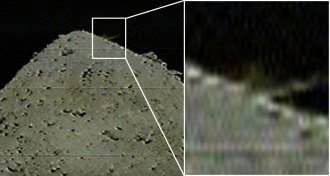 Planetary Science
Planetary ScienceHayabusa2 has blasted the surface of asteroid Ryugu to make a crater
Japan’s Hayabusa2 spacecraft shot a projectile at Ryugu. Next: collecting asteroid dust from the probable impact crater left behind.
-
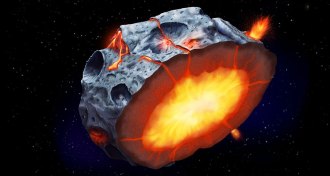 Planetary Science
Planetary ScienceMetal asteroids may have once had iron-spewing volcanoes
Two groups of scientists introduce the idea of “ferrovolcanism,” or iron volcanoes, that could have occurred on metal asteroids like Psyche.
-
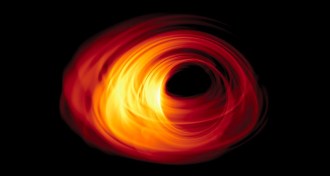 Astronomy
Astronomy4 things we’ll learn from the first closeup image of a black hole
Scientists are gearing up to release the first image of the black hole at the center of the galaxy. Here’s what they hope to find out.
-
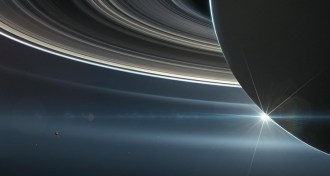 Planetary Science
Planetary ScienceSaturn’s rings paint some of its moons shades of blue and red
Moons located among Saturn’s inner rings are different colors depending on their distance from the planet, suggesting they’re picking up ring debris.
-
 Planetary Science
Planetary ScienceKuiper Belt dust may be in our atmosphere (and NASA labs) right now
Bits of space debris that collect in Earth’s atmosphere may come from as far as the cold, distant Kuiper Belt region beyond Neptune.
-
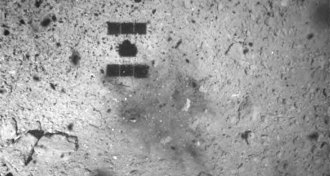 Planetary Science
Planetary ScienceRyugu is probably a chip off one of these two other asteroids
Japan’s Hayabusa2 team has narrowed down the asteroid Ryugu’s origins based on its color.
-
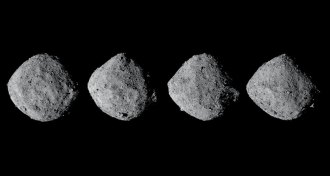 Planetary Science
Planetary ScienceSurprising astronomers, Bennu spits plumes of dust into space
Bennu spews dust from its rocky surface, which may be a new kind of asteroid activity.
-
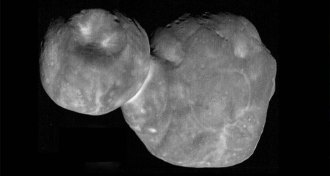 Planetary Science
Planetary ScienceUltima Thule may be a frankenworld
The first geologic map of Ultima Thule shows it might be made of many smaller rocks that clumped together under the force of their own gravity.
-
 Astronomy
AstronomyMerging magnetic blobs fuel the sun’s huge plasma eruptions
Solar eruptions called coronal mass ejections grow from a series of smaller events, observations show.
-
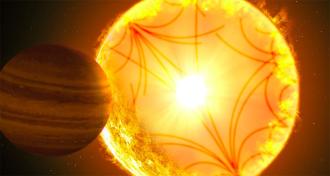 Astronomy
AstronomyThe first planet Kepler spotted has finally been confirmed 10 years later
Astronomers had dismissed the first exoplanet candidate spotted by the Kepler space telescope as a false alarm.
-
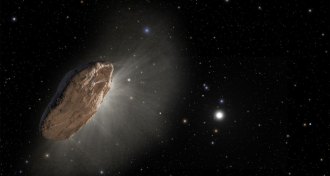 Astronomy
Astronomy3 explanations for ‘Oumuamua that aren’t alien spaceships
Astronomers are coming up with some creative ideas to explain the weird behavior of the first known interstellar object.
-
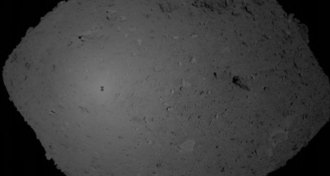 Planetary Science
Planetary ScienceHayabusa2 just tried to collect asteroid dust for the first time
The Japanese Hayabusa2 spacecraft touched down on asteroid Ryugu and attempted to gather a sample of its rock to bring back to Earth.